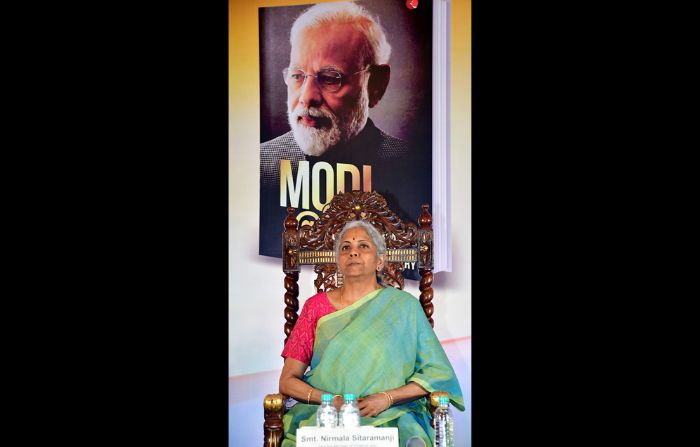- Thursday, April 03, 2025
Despite facing opposition criticism regarding elevated youth unemployment rates, the government is poised to persist in substantial infrastructure spending.

By: Shubham Ghosh
INDIAN prime minister Narendra Modi is expected to deviate from the customary trend of extensive spending on novel welfare schemes in the budget preceding the general elections scheduled this year. The focus is set to pivot rather towards bolstering infrastructure to sustain economic momentum while simultaneously narrowing the budget deficit.
Finance minister Nirmala Sitharaman is scheduled to unveil the budget for the fiscal year 2024-25 on February 1, with economists predicting a budget that emphasises political messaging to reinforce the Modi government’s narrative of inclusive growth, while adopting a cautious stance towards expenditure.
According to Samiran Chakraborty, an economist at Citigroup, the government is likely to pursue a strategy that strikes a balance between pre-election political messaging, the imperative for fiscal consolidation, and the sustained emphasis on capital expenditure. One potential measure may involve doubling the annual subsidy to female farmers to Rs 12,000 (£114), aimed at appealing to women voters. However, the policy adjustment is expected to incur a relatively modest cost of $1.44 billion (£1.13 billion) annually within the broader framework of government expenditure, according to a Reuters report.
Read: India finance minister Sitharaman, 3 others in Forbes most powerful women list
Furthermore, the government is expected to maintain major subsidies at current levels for the upcoming fiscal year, amounting to approximately $48 billion (£38 billion). Modi’s extension of the free food grain programme for the next five years is projected to entail minimal additional spending, given its longstanding implementation as a subsidised food-grain initiative.
Read: PM Modi doesn’t believe in entitlement, says Sitharaman
The government is aiming to trim its fiscal deficit, which denotes the variance between expenditure and revenue collected, by a minimum of 50 basis points in 2024-25, down from the ongoing fiscal year’s targeted 5.9 per cent of the GDP.
Despite facing opposition criticism regarding elevated youth unemployment rates, the government is poised to persist in substantial infrastructure spending. It intends to entice both foreign and domestic manufacturers to invest through incentivisation, banking on the prospect that its growth-oriented policies will ultimately generate employment.
The prospective reduction in the fiscal deficit during an election year suggests that the government may not heavily rely on social spending to court voters. Instead, it appears to lean on Modi’s popularity, which recently aided the ruling party in winning state elections, along with emotive events such as the recent inauguration of the Ram temple on a long-disputed site.
“As it is a general election year, there will be at least some temptation from within the ruling BJP (Bharatiya Janata Party) to announce big fiscal giveaways,” Shilan Shah, deputy chief emerging markets economist at Capital Economics was quoted as saying by Reuters.
“But following the BJP’s exceptionally strong performance in recent state elections, we think it will conclude that it has enough political goodwill to balance the need for giveaways with its long-term ambition of reining in the fiscal deficit,” said Shah.
Propelled by public expenditure, India’s economy expanded by 7.6 per cent in the July-September quarter, with a projected growth rate of 7.3 per cent for the entire fiscal year ending on March 31, marking the world’s swiftest pace among major economies. A potential upsurge of up to 20 per cent year-on-year in capital expenditure is anticipated for 2024-25.
Deutsche Bank, in a note, suggested, “The strategy of boosting on-budget capital expenditure is likely to be continued, which will in turn help the private sector investment cycle to gain traction.”
Government officials indicated that India is inclined to refrain from significant announcements regarding privatisation due to the electoral context.
(With Reuters inputs)